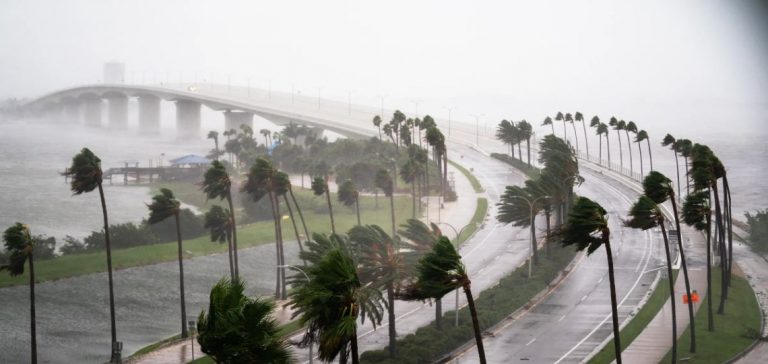The passage of Hurricane Helene causes over 4.7 million power outages in the Southeastern United States, impacting energy infrastructures and mobilizing restoration efforts.
Hurricane Helene, classified as a Category 4 storm, makes landfall on September 26 near Perry, Florida, generating massive power outages across six states. Duke Energy reports the most significant disruptions with 1.63 million private customers without electricity. Georgia Power, Florida Power & Light, and Tennessee Valley Authority also experience severe interruptions, compromising electricity distribution in the region.
In Georgia, electric cooperatives report extensive damages, including over 100 high-voltage transmission lines and 60 substations out of service. These components are crucial for maintaining grid stability, and their destruction significantly slows down restoration operations.
Response of Energy Operators
Energy operators such as Duke Energy and Florida Power & Light quickly mobilize their teams to assess damages and restore service. Florida Power & Light has already restored electricity to over 460,000 customers, although 214,000 remain without power. Armando Pimentel, President of FPL, assures that restoration efforts continue intensively.
Duke Energy, covering states like South Carolina, Florida, and Ohio, deploys over 10,000 technicians from 23 states to repair damaged infrastructures. These teams work continuously despite adverse weather conditions, highlighting the complexity and scale of restoration operations.
Vulnerability of Nuclear and Gas Infrastructures
Nuclear power plants such as Joseph M. Farley Nuclear Plant, Oconee Nuclear Station, and Edwin I Hatch Nuclear Plant withstand the storm with minimal damage. However, gas infrastructure experiences interruptions, notably at Kinder Morgan’s Elba Island LNG export terminal. Although the terminal resumes operations, crude oil and natural gas production in the Gulf of Mexico decreases by 24% and 18%, respectively, affecting regional energy supplies.
Offshore gas production rebounds slightly, reaching 1.5 Bcf/d on September 27, but remains below average. Additionally, domestic gas demand decreases due to cooler temperatures, contributing to a drop in market prices.
Federal Coordination and Restoration Efforts
The Federal Emergency Management Agency (FEMA) coordinates response efforts, with the Department of Energy (DOE) mobilizing over 50,000 personnel to assist with restoration. Ken Buell, Deputy Director for Response and Restoration at the DOE, states that resources are being deployed strategically, although the restoration timeline remains uncertain due to persistent weather conditions.
Strong winds and flooding complicate repair operations, limiting access to the most affected areas. Authorities continue to closely monitor the situation as field teams work to secure and restore critical infrastructures necessary for restarting the electrical grid.
Perspectives and Lessons for the Energy Sector
The disruptions caused by Hurricane Helene highlight the fragility of energy systems in the face of extreme weather events. The need for continuous investments in infrastructure resilience and energy source diversification is reaffirmed as a priority to minimize future impacts.
Helene’s experience may influence risk management strategies and strengthen decarbonation initiatives by promoting a more robust and adaptable energy infrastructure. The energy sector must integrate these lessons to improve preparedness and response to future natural disasters, ensuring essential service continuity for the economy and society.
Hurricane Helene demonstrated the vulnerability of energy systems to natural disasters, emphasizing the necessity for ongoing investments in resilience and sectoral innovation to minimize future impacts.






















